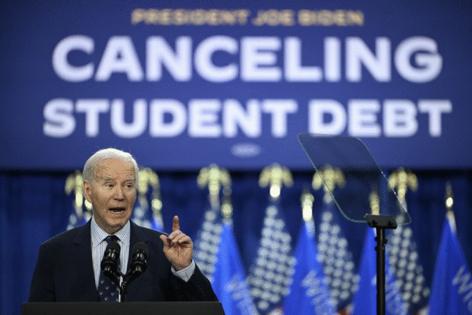Commentary: Have presidents become too busy to handle their fundamental duties?
Published in Op Eds
It’s amazing, if not incredible, to witness how much we’ve vested U.S. presidents with power to manage the minutiae of the average American’s life. To some degree, it seems, we buy into the expression that this single individual — the one tasked with overseeing parts of a government — “runs the country.”
No wonder it’s so hard, no matter how well-prepared budding entrepreneurs may be, to be successful. They must deal successfully with a thicket of rules and regulations imposed by a White House whose occupants believe they manage just about everything. In addition, everyone, no matter how rich or poor, is on the receiving end of some kind of federal welfare, whether it be stimulus money, subsidized electric vehicles, tariff-protected jobs, or taxpayer-enabled prescription medicine and health care.
The scope of a president’s responsibilities includes overseeing a national health care program, regulating the prices of prescription medicines, setting rules to govern mortgage finance, enabling student financial aid and loan forgiveness, setting auto fuel-economy and washing-machine standards, determining who may enter the country or get booted, dealing with climate change, managing the nation’s plumbing as we switch from lead pipes to something safer, and deciding when the nation should go to war! And of course, this is barely the beginning.
Perhaps these expectations are why the next White House occupant will have such wide-ranging powers to provide hand-picked benefits to hand-picked individuals and interest groups. That would also explain why our two candidates seem to prefer talking about expanding day-care programs, doing away with taxes on tips, and just how much to raise tariffs on foreign goods to protect American workers (instead of strengthening our nation’s economy for the good of all American consumers taken together).
The current conversation is much like fussing over the comfort of deck chairs on the Titanic. Let us hope whoever wins will turn their attention toward the wellbeing of the deficit-ridden vessel itself. It’s time to remind ourselves of what Adam Smith called the more fundamental duties of the sovereign, set forth in his monumental 1776 work, “Wealth of Nations.”
Smith was describing a “system of natural liberty.” His earlier ideas had reinforced Thomas Jefferson’s ideas for the Declaration of Independence. Anticipating our modern White House expectations, it seems, Smith described his system this way: “Every man, as long as he does not violate the laws of justice, is left perfectly free to pursue his own interest his own way, and to bring both his industry and capital into competition with those of any other man, or order of men.”
Rather than regulating the minutiae of everyday life, “the sovereign is completely discharged from a duty.” For to involve oneself with such details would require a level of engagement “of which no human wisdom or knowledge could ever be sufficient.” Who among us, even in an age of artificial intelligence and gigantic executive-branch agencies, can realistically handle “the duty of superintending the industry of private people, and of directing it towards the employments most suitable to the interest of the society?”
Yes, Smith agreed with some modern analysts who think no ordinary human being could ever be equipped to regulate the entire U.S. economy. But this was just the beginning.
Smith emphasized that “the sovereign has only three duties to attend to, which we might paraphrase as 1) providing national defense, 2) protecting the life and property of citizens with a system of justice, and 3) providing infrastructure and other public works — things like roads, bridges, harbors and perhaps protection of public health.
This oft-called “night watchman government” establishes a crucial starting point for an assessment, relatively free from campaign-driven distractions, of how we are doing. A necessary starting point, mind you.
Perhaps it’s because we’ve vested such vast responsibility with the president for providing detailed benefits to identifiable interest groups that little time is left in public debate, interviews, and discussion to consider these duties of the sovereign, the very foundation stones of our nation.
Voters should remember the duties of the sovereign and insist that the person we hire to run our government speaks in such terms. Instead of asking “what are you going to do for me?”, we might first ask “what are you going to do to make our whole country stronger and more secure?”
____
Bruce Yandle is a distinguished adjunct fellow with the Mercatus Center at George Mason University, dean emeritus of Clemson University’s College of Business & Behavioral Science, and former executive director of the Federal Trade Commission.
___
©2024 Tribune Content Agency, LLC.




























































Comments